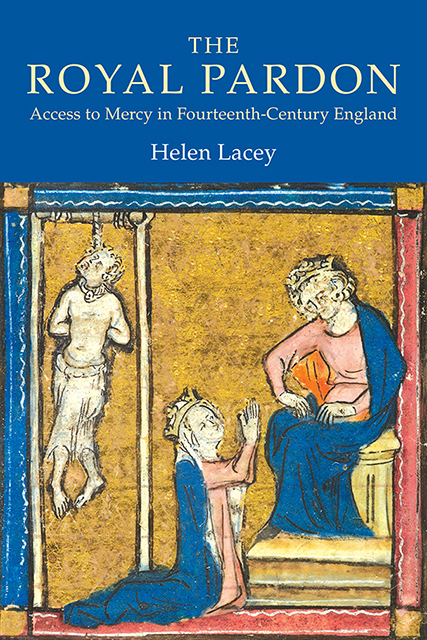Chapter Eight - Pardoning and Celebration: Edward IIIâs Jubilee
Published online by Cambridge University Press: 07 March 2023
Summary
On 25 January 1377, Edward III became only the second English monarch to reach the end of his fiftieth year on the throne, and he marked the event with a grant of general pardon. The only previous king to have ruled for over half a century was Henry III, but in 1266, when he reached this milestone, the fragility of the political situation was such that the anniversary received scant attention. However, there was, in the teaching of the Roman Church, a well-established precedent for attaching significance to the fiftieth year. The notion of a jubilee year as a year of grace was enshrined in the scripture of the Old Testament as a time of personal emancipation and spiritual redemption. The book of Leviticus held that the fiftieth year was to be a special year of jubilee, in accordance with the divine commandments received by Moses on Mount Sinai. Every fiftieth year, on the Day of Atonement, the people of Israel were to recognise the year as holy and proclaim liberty throughout the land for all enslaved debtors, and cancel all public and private debts. All family estates sold to others were also to be returned to the original owners and their heirs; the land was to be left to rest and servants freed.
The spirit of this commandment had been revived by the papacy in 1300, with a series of celebrations designed to honour the anniversary of Christ’s birth. Pope Boniface VIII encouraged the faithful to make the pilgrimage to Rome, proclaiming in the bull Antiquorum habet fidem that plenary indulgences would be on offer to those who made the journey. Although he made the proclamation on 22 February 1300, it was designed to mark the anniversary on Christmas Day 1299. This was the first time that the anniversary of the birth of Christ had been marked in such a way, and it was a noted success. Dante referred to the ‘year of the jubilee’ in the Commedia, describing the throng of pilgrims making their way across the Ponte Sant’ Angelo towards St Peter's basilica, and it is possible that the poet was himself an eye-witness to these events. The Chronicle of Bury St Edmunds also records how ‘people of both sexes and every age from all over the Christian world hastened to the Roman court.
- Type
- Chapter
- Information
- The Royal Pardon: Access to Mercy in Fourteenth-Century England , pp. 113 - 126Publisher: Boydell & BrewerPrint publication year: 2009



